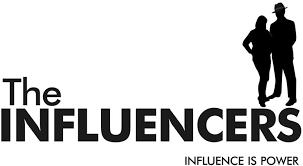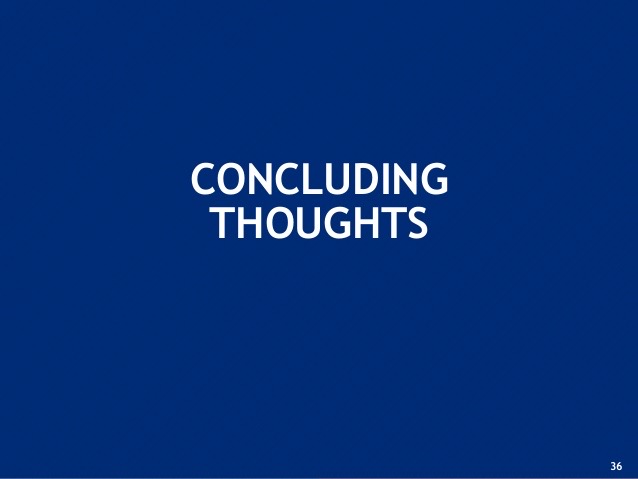U.S. Congressional regulators prepare to bring Big Tech to heel
28 July 2020 (Chania, Crete) – Tomorrow one of the more notable Congressional hearings in Silicon Valley history is set to take place. The 15-member House Judiciary Antitrust Subcommittee will ask questions of Amazon CEO Jeff Bezos, Apple CEO Tim Cook, Facebook CEO Mark Zuckerberg, and Google CEO Sundar Pichai. The hearing will be conducted remotely to adhere to coronavirus social distancing guidelines.
The hearing was set for yesterday but was postponed to accommodate the memorial for U.S. Representative John Lewis.
The event is what’s known as an evidentiary hearing: members of Congress are gathering evidence as part of a 13-month investigation into competition and digital marketplaces. The outcome could be legislation that seeks to rein in the market power of these giants, limiting their ability to create monopolies.
Or it could turn out to be one more theatrical tech hearing in a series of them, where members of Congress look to score points with gotcha-style questioning as CEOs furrow their brows and promise that a member of their teams will follow up on that later.
A few notes: Twitter CEO Jack Dorsey is not expected to testify despite a push late last week from some Republicans on the committee.
Also, interestingly, Microsoft is conspicuously absent from the proceedings, but as I noted last week, Slack was determined to make sure that Microsoft is a part of the conversation with its formal antitrust complaint against Microsoft with the EU.
The House Judiciary antitrust subcommittee has already announced it is investigating different alleged abuses by each of the four companies: Google’s control of its ad market, Facebook’s acquisitions of WhatsApp and Instagram, Apple’s App Store policies, and Amazon’s treatment of third-party sellers.
There is also the topic of “algorithmic outrage” although I am not sure the hearing will get to it, although you must admit it’s a topic Marc Zuckerberg should get zinged with. One of my staffers who is covering the House Subcommittee hearing was able to obtain an interesting report on it. “Algorithmic outrage” is the relationship between public outrage and network algorithms which allow social media to operate. The Facebook feed. Google News. Twitter. Each of these platforms draws attention for specific ways algorithms aggregate information, persuade, spread rumors, attract attention, and get audiences angry. Digital outrage, in particular, deserves attention regarding algorithmic influence. Algorithms can capture keywords or posts, but such algorithms can only capture immediacy; i.e., the layered, aggregated nature of digital outrage code cannot detect.
I recently received a long treatise prepared by the University of Kentucky Department of Writing, Rhetoric, and Digital Studies (which I’ll share in a subsequent post) that proposes that an algorithm of outrage is not a software or code issue (as an algorithm is typically understood) but one of network and ideological algorithms. Digital outrage depends on more than one network to exist. Visualizing these networks via data analysis cannot track or trace actors in a given network – such as those on Facebook, in academia, or in a college or university – because networks layer.
And, of course, the House Committee should address unrestricted data collection. My staffer obtained an interesting report about how Google is merging its Nest division’s data with users’ Google accounts. For some customers, merging Nest data could include years of information on a family’s comings and goings, home energy usage and security camera video recordings. Initially, Google said it would not use that information for advertising … “that data will never be used for ads personalisation” … but then backed off that statement. I mean, why buy Nest in the first place since all of these Big Tech acquisitions are about the data, not the utility of the product.
Note: the European Commission is going through similar issues with Google’s planned acquisition of Fitbit. After what is known as a “Phase 1” investigation, the Commission is now privately “market testing” a remedy from Google that it would hold separate and not use Fitbit’s user data (body data, health and fitness data) for advertising purposes for a period of five years (the terms of the remedy have been reported in the specialist press).
But EU regulators have been far too lenient in approving digital mergers. Mergers such as Google-DoubleClick and Facebook-WhatsApp (the posterchild of unkept promises on data segregation) have had serious knock-on effects that EU regulators are now at a loss to undo.
And Fitbit is an attractive target for Google because it is a source of high-value personal health data. Digital health is a booming area for Big Tech. In my private memo to clients I noted Fitbit is incredibly attractive as a way to capture consumers’ attention. A wearable is essentially a minicomputer that people wear on their bodies around the clock. As such, it has unique access to our attention, turning us into sitting targets for exploitation, but importantly also allowing Google to protect its dominance in search and data (just as it did with Android). It’s just another step for Big Tech to turn the health data of users into a proprietary fiefdom.
The law will always be years behind the society it ostensibly regulates. New technologies always have a way of making old laws seem obsolete. And that can set off a flurry of fumbling, half-hearted activity at every level, from cities and towns to states to the federal government, as lawmakers try to catch up and fill any gaps.
Because at the end of the day, for all of these digital companies, the issue is the same: it’s all about human behavior. Any antitrust investigations should consider the aggregation of data, the predictability of behavior, and how Amazon-Facebook-Google (not Apple so much) can manipulate behavior.
And what will not be on the House committee agenda tomorrow are the deeper issues at stake here. To borrow from my own longer work-in-progress:
• Since the outbreak of COVID-19, governments have turned their attention to digital contact tracing. In many countries, public debate has focused on the risks this technology poses to privacy, with advocates and experts sounding alarm bells about surveillance and mission creep reminiscent of the post 9/11 era. Yet, when Apple and Google launched their contact tracing API in April 2020, some of the world’s leading privacy experts applauded this initiative for its privacy-preserving technical specifications. In an interesting twist, the tech giants came to be portrayed as greater champions of privacy than some democratic governments. We need to view developments like the Apple/Google API in terms of a broader phenomenon whereby tech corporations are encroaching into ever new spheres of social life. From this perspective, the (legitimate) advantage these actors have accrued in the sphere of the production of digital goods provides them with (illegitimate) access to the spheres of health and medicine, and more worrisome, to the sphere of politics. These sphere transgressions raise numerous risks that are not captured by the focus on privacy harms. Namely, a crowding out of essential spherical expertise, new dependencies on corporate actors for the delivery of essential, public goods, the shaping of (global) public policy by non-representative, private actors and ultimately, the accumulation of decision-making power across multiple spheres.
• In 2015, Benjamin Bratton published an influential book entitled The Stack which I have quoted in numerous briefs. You need to read it in conjunction with Vincent Mosco’s The Digital Sublime, written in 2005. Both writers focus on a central proposition: that digital computing and the digital tech operational scheme will become/has become a global leviathan. Bratton writes that current computing systems are best conceptualised as a global megastructure —the Stack – that is layered by six tiers (Earth, Cloud, City, Address, Interface, and User) and that has rendered all current forms of governance and sovereignty obsolete. Mosco takes it further and challenges “the myth of cyberspace”: that the cyber utopians mythic pronouncements of an age of openness, transparency, revolution, and consumer control have it all wrong. It will lead to the transformation of society but dictated by the constraints and control of the growing digital giants who will overturn all traditional economic, social and political relationships, and not to the consumer or citizen’s benefit.
As I have noted in several earlier pieces, regulators are still grappling with an age in which we have been “platformed”. What sets the new digital data superstars apart from historical firms is not their market dominance; many traditional companies have reached similarly commanding market shares in the past. What’s new about these companies is that they themselves are markets. Yes, markets have been around for millennia; they are not an invention of the data age. But digital data superstar firms don’t operate traditional markets; theirs are rich with data which gives them enormous power. And digital structure … as I have noted above … is why regulation of Big Tech and data protection is so futile, as I have explained in previous posts.
For Big Tech, the mantra is “competition”. And their clear message is the best way to foster competition is to maintain a hands-off approach to antitrust law. And “assist the consumer in a seamless manner”. And Zuckerberg will surely portray his company as an American success story in a competitive and unpredictable market, now threatened by the rise of Chinese social media apps around the world – and increasingly, at home, with the popularity of TikTok.
Zuckerberg made a similar argument at a 2019 hearing about Libra, the now-renamed cryptocurrency:
China is moving quickly to launch a similar idea in the coming months. If America doesn’t innovate, our financial leadership is not guaranteed. It is important not to let China set the rules for the internet in the rest of the world, given the country’s values aren’t democratic.
It really is notable what a gift TikTok has been to Facebook as it prepares for these hearings. Not only has a genuine, bona fide competitor to Facebook emerged – thanks in part to TikTok spending the greater portion of its $1 billion marketing budget on Facebook ads – but it comes from a repressive authoritarian regime whose censorship of political speech offends Republicans and Democrats alike.
One important thing to note: the long era of restraint in antitrust enforcement in the United States can be traced back, in part, to an ideology that tied economic analysis to legal cases. The view was that it’s not enough for a company to dominate a market and crush competitors, there must be evidence of so-called consumer harm — usually in the form of higher prices. That notion permeated through the American judicial system with the aid of economics seminars for federal judges funded by corporate donors.
Yet again, Big Tech influence in a most interesting way. The Manne Economics Institute for Federal Judges, which ran from 1976 to 1999, was organized by the Law and Economics Center — now housed at George Mason University’s law school. A judicial bootcamp lovingly corporate-funded that has shaped multiple rulings. By 1990, about 40 percent of all sitting federal judges had attended one of these seminars, according to the program’s director. Researchers found that judges who attended the seminars were more likely to approve mergers, rule against environmental protections and organized labor, and use economic language in rulings compared to judges who did not attend, according to an academic study looking at the effects of the program.
The Global Antitrust Institute, which was established in 2014 as part of George Mason University’s Law and Economics Center, has taken a page from the success of the federal judges program and adapted it for an international audience. It is also starting to offer an economics program for U.S. federal judges, with one scheduled for October in Napa, Calif.
I do not want to devote too much space to this “educational adventure” so I’ll leave you with just two examples:
• Among the reading material at the Institute is a paper by Hal Varian, Google’s chief economist, who argues that the usual economic hallmarks of monopoly power do not apply to tech companies because of the nature of digital products – they’re expensive to develop initially but can be resold again and again at little additional cost – and therefore should not be used by antitrust enforcers to justify aggressive action.
• Tommaso Valletti, who served as the chief competition economist for the European Commission from 2016 to 2019, has attended several of the Institute’s events and knows the group’s positions and teaching practices. He was recently interviewed about the Institute’s agenda and noted it presented one-sided examples of competitive markets working correctly to reinforce the view that markets left on their own work well – to the benefit of entrenched tech companies: “They do not give a balanced perspective of economics and its application to antitrust. They still portray a simplistic vision of markets, which I believe fits well in their goals.”
Let’s try to unpack some of the areas the House Committee will address.
There is a weird thing about the hearing … and I am not the only pundit to note this … and that’s while Amazon, Apple, Facebook, and Google share some broad characteristics, they are also very different companies. (Scott Rosenberg has a nice, concise overview of their similarities and differences in Axios.) It is difficult to imagine a single antitrust remedy that applies equally to all four companies and restrains their power in the same way. Casey Newton says “when I try to imagine what this hearing will be like, I think of 15 prosecutors trying four murder cases simultaneously … on Zoom.”
On the other hand, each of the companies operates one or more marketplaces. Amazon sells real goods; Facebook and Google sell ads; Apple sells apps. Each of them has successfully aggregated hundreds of millions of people or more into world-scale user bases that sometimes resemble nation-states unto themselves as much as they do traditional corporations.
So what will Congress ask about tomorrow? In Protocol, Issie Lapowsky and Emily Birnbaum make their best guesses. And they make this salient point about how good these CEOs have it, all things considering:
In facing these questions together, the four CEOs are getting off easy. Their testimony will be virtual, for one thing, eliminating the bad optics of having them stand before the committee in suits, hands in the air as they swear to tell the truth. And by testifying as a group, not only will they share the brunt of the committee’s contempt, they’ll also benefit from the fact that, given the time constraints and the number of witnesses, lawmakers will never be able to probe all of the potential antitrust violations these companies are individually accused of.
Quick fire round:
For Amazon, expect questions about how the company uses data from the independent businesses who sell their products on Amazon to decide which products to build and sell under its own labels — while also giving them much better promotion. Last year the company told Congress it was not doing this, but then it turned out that they are. At that point Amazon’s explanation pivoted to “Hey, that’s not supposed to happen. We’re going to look into it!” But the European Union plans to sue the company over it anyway. In any case, this will be the first time Jeff Bezos has ever testified before Congress, and given how little he has said publicly during a year of crisis for the company, it should be a hoot.
Apple’s antitrust problems are centered on its App Store. The company extracts a 30 percent cut of revenue from apps selling digital goods, including from apps that it competes with directly. Apps like Spotify, which it challenges with Apple Music, or Basecamp’s Hey, which competes with Mail and iCloud. Apple’s response to this has been that these apps are doing fine, the app ecosystem is doing fine, and taking a 30 percent cut of everything is simply the industry standard.
The Information reports that Cook is extremely annoyed at having to appear at this hearing, in part because he has spent so much time sucking up to the Trump administration. Christopher Stern writes:
Cook’s mixture of low-key charm and savvy political maneuvering have also played a role in cultivating ties in Washington. He has built a rapport with Trump and his family, joining the president for private dinners while sitting by his side during White House events (including one last year in which Trump referred to Cook as “Tim Apple”). Cook seems to have stayed on Trump’s good side partly by keeping his mouth shut. Last year, Cook led Trump on a tour of a Texas factory that makes high-end Mac computers, later taking credit for “opening” the plant as part of a push to bring more manufacturing jobs back to the U.S. Despite the fact that the plant had opened six years earlier, long before the start of Trump’s presidency, Cook didn’t correct him.
Facebook’s purchases of Instagram and WhatsApp, and aggressive cloning of Snap, led to a period of relative stagnation among social apps in the United States while cementing a dominant position alongside Google in digital advertising. It has also acted in arguably anticompetitive ways, like blocking Vine users from finding their Facebook friends on the app once Vine started to get traction. That’s why the company is currently under separate investigations for antitrust issues from the Department of Justice, the Federal Trade Commission, and state attorneys general. One antitrust lawyer fighting Facebook told me the promise of this hearing for Facebook watchers is that it could unearth new documents pointing to how executives talked about these issues internally when it was making the decisions in question.
As for Google? That company probably faces the most serious near-term consequences of antitrust action. The Justice Department is reportedly planning to file a case against Google this summer. Two separate investigations by the nation’s attorneys general are also underway – one led by Google’s home state of California, and the other comprising most other states. At issue are longstanding questions around how Google promotes its own products over rivals in search results. Protocol notes that other issues under investigation include Google making its search engine the default on Android devices, paying Apple billions to be the default search engine on the iPhone, and buying up major digital advertising networks to build its half of the digital advertising duopoly.
I’ve been cruising all of my tech blog reads to find out what my cohort thinks the House Committee should ask. Fortunately, New York University professor and podcaster Scott Galloway offered up a sharp, data-driven guide to what Congress might ask, paired with helpful charts that help an average person understand the scale at which Apple, Amazon, Facebook, and Google are operating — and how that scale disadvantages competitors and likely discourages various categories of business from ever starting. It’s a great read. My favorites:
• Amazon: In a five-week period during the pandemic, your firm added the value of the world’s largest firm by revenue — Walmart. If your firm can accrete the value of the largest firm in the world in five weeks, and money is power, then isn’t your firm the most powerful private entity in history? Hasn’t your firm reached a level of soft and economic power well beyond the point when the DOJ has historically taken antitrust action?And this one, about Apple.
• Apple: Apple TV+ is offering consumers $1 billion in original content for every .80c a month the consumer spends on your Apple TV+ streaming video service. Isn’t it your opportunity to differentiate your $1,300 phones and fund Apple TV+ from the revenues of an unrelated product that allows you to offer a media product at well below cost? In sum, isn’t Apple guilty of “dumping,” that is, buying market share with unfeasibly low prices?
A few other questions from different blogs:
•“How often do you guys talk?”
• “How does your large share of advertising / ecommerce / devices / software not stifle innovation among smaller companies looking to gain traction in industries where critical mass is an economic driver?”
“Question for Sundar: What work is YouTube doing to investigate how they can increase engagement with their product WITHOUT radicalizing the viewer?”
The current U.S. framework in antitrust — specifically its pegging competition to “consumer welfare,” defined as short-term price effects — is unequipped to capture the architecture of market power in the modern economy, captured by such new technologies as artificial intelligence and gargantuan databases. Further, anti-competition frameworks just do not “get” platforms. Quoting Lina Hahn from her forthcoming book Amazon’s Antitrust Paradox (out this fall):
First, the economics of platform markets create incentives for a company to pursue growth over profits, a strategy that investors have rewarded. Under these conditions, predatory pricing becomes highly rational—even as existing doctrine treats it as irrational and therefore implausible.
Second, because online platforms serve as critical intermediaries, integrating across business lines positions these platforms to control the essential infrastructure on which their rivals depend. This dual role also enables a platform to exploit information collected on companies using its services to undermine them as competitors.
Amazon will be the one to watch tomorrow. Bezos is preparing for his first-ever appearance before Congress. This is interesting because, as Jason Del Rey notes at Recode, when it comes to government relations Amazon has been perhaps the most arrogant company of its peers:
Despite this growing scrutiny from politicians and the public, Bezos’s company has openly flaunted its power over the last few years. In its hometown of Seattle, Amazon successfully quashed a proposed payroll tax meant to combat homelessness by threatening to pause construction on its massive new Seattle headquarters, which would have boosted commercial activity in the city’s downtown neighborhood. Later, the company plowed funds into a local Seattle election to try to defeat those politicians who supported the payroll tax. It has also sparred with its hometown US House representative, Pramila Jayapal, in a baffling move that has cemented her status as a company critic while she also serves on the very antitrust subcommittee investigating the company.
Amazon is the most fascinating one to me of the four “on trial” tomorrow. It is the titan of twenty-first century commerce. Bang. Full stop. No argument. In addition to being a retailer, it is now a marketing platform, a delivery and logistics network, a payment service, a credit lender, an auction house, a major book publisher, a producer of television and films, a fashion designer, a hardware manufacturer, and a leading host of cloud server space. Yes, it has clocked staggering growth, yet generates meager profits, choosing to price below-cost and expand widely instead. Through this strategy, the company has positioned itself at the center of e-commerce and now serves as essential infrastructure for thousands of other businesses that depend upon it. It is the subject of my first long-form competition brief out this fall.
As to tomorrow’s hearing … well, it’s hard to analyse everything at stake here. This post merely skimmed the surface. I actually would have preferred that each of these companies had been called to attend their own, separate, more focused hearing. And not just because it would likely result in more revealing questions being asked – but also because it could give room for CEOs to give more complete, meaningful answers.
But given the somnambulant state of antitrust regulation in the United States over the past 20 years, you take what you can get. Whatever happens tomorrow, it seems likely that the hearing will be one we talk about ad nauseam for a long time to come.






